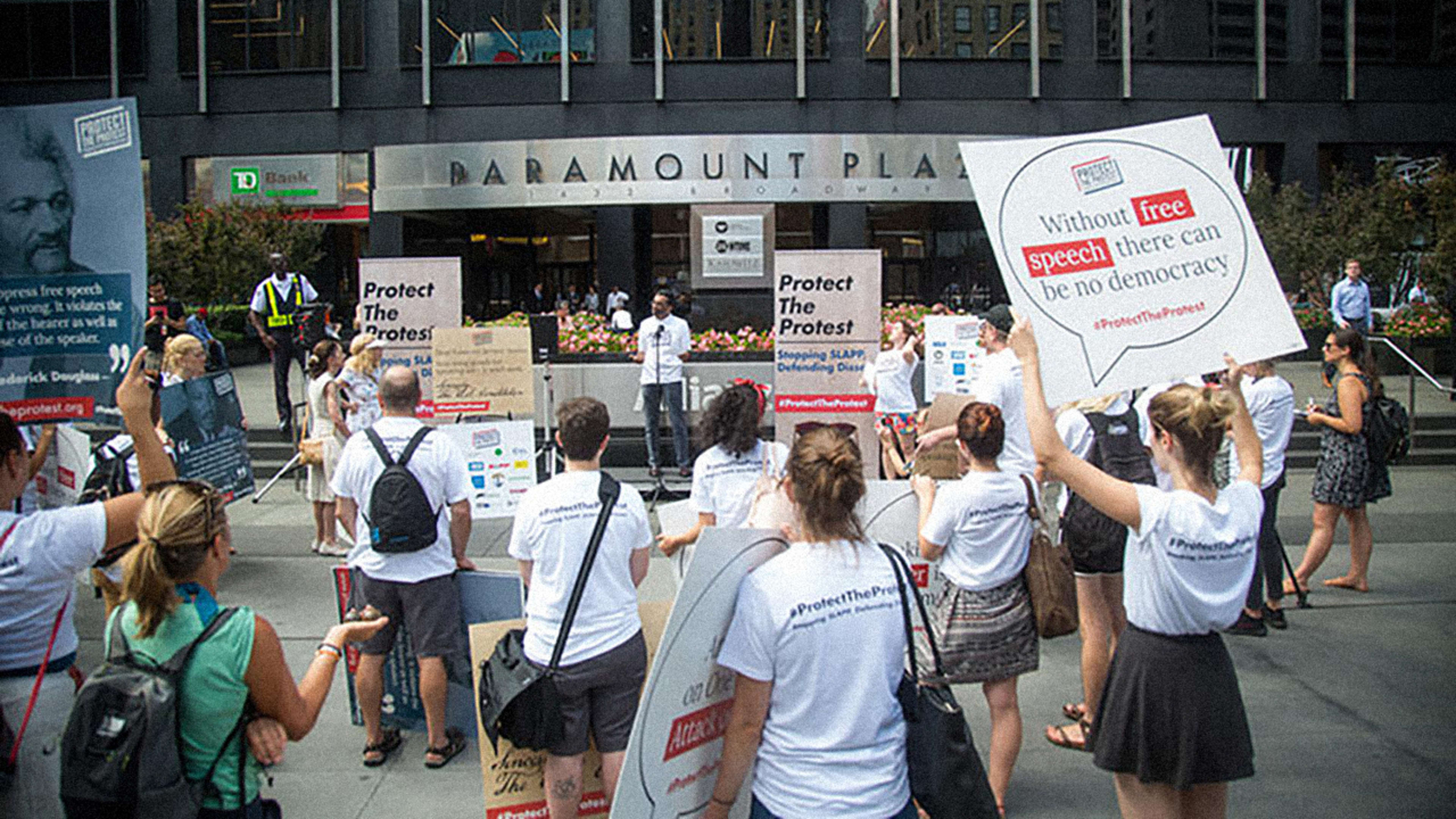In August 2017, Energy Transfer Partners, the company behind Dakota Access Pipeline, filed suit against three of the major nonprofits protesting the massive underground oil pipe project. The suit accuses BankTrack, Earth First!, and Greenpeace of using racketeering-style tactics to hurt business, and seeks nearly $1 billion in damages.
In protester parlance, this is what’s known as a SLAPP lawsuit, short for “strategic lawsuit against public participation.” The goal isn’t necessarily to win, but to “gum up the works” to the point where it becomes either too time-consuming or expensive for protest groups or civil activists to continue trying to stop corporate malfeasance, says Jana Morgan, the director of advocacy and campaigns at the International Corporate Accountability Roundtable (ICAR).
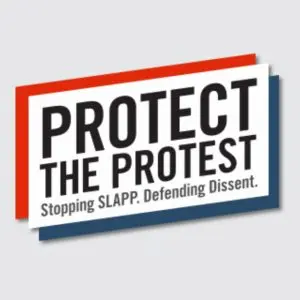
Rather than fold, however, more than 20 of the nonprofit world’s largest civil liberties and environmental protection groups have banded together in an initiative called Protect The Protest. The goals are to communicate about common types of SLAPP suits and how to avoid or dismiss them, campaign together when such salvos are lobbed against both Protect the Protect members and smaller pods of activists or organizers that might not have the resources to defend themselves, and eventually support legislation that helps diffuse these practices altogether. The initiative’s membership includes ICAR, as well as the American Civil Liberties Union, Amnesty International, Electronic Frontier Foundation, Freedom of the Press Foundation, and Greenpeace, among others.
“One of the biggest and most important components of this is our tagline, which is: ‘An attack on one is an attack on all.’ So if you go after one of us, you’re going to hear from all of us,” Morgan says. “But we’re not just defending ourselves. We’ll also be looking to offer legal aid or legal advice or campaigning support to other organizations that may get SLAPPed or other individuals if they get SLAPPed.”
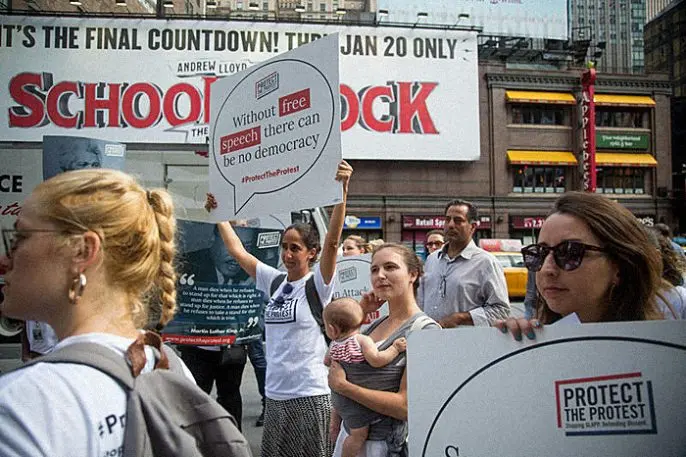
To that end, the group’s website shares more information about current lawsuits it’s collectively opposing, including the Energy Transfer Partners imbroglio. Protect the Protest officially launched earlier this month with a demonstration outside the New York offices of Kasowitz Benson Torres LLP, which represents ETP (and not surprisingly, Donald Trump); they also installed a protest billboard in front of the firm’s Dallas headquarters.
The Protect the Protest site also shares more about how to recognize SLAPPs so more of those targeted can take action. By definition, these suits traditionally oppose some First Amendment protected activity like “free speech, peaceful protest, or petitioning of the government.” They also exploit a power imbalance, as they generally involve wealthy plaintiffs seeking large damages from activists and nonprofits, and sometimes continuing to file claims in a way that extends expensive and time-sucking court proceedings.
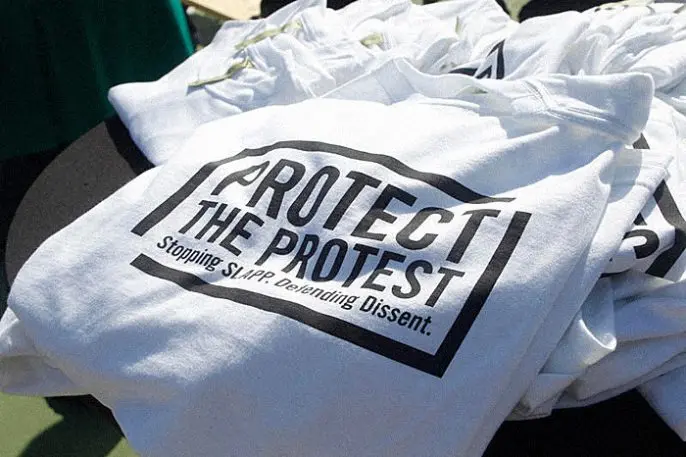
Several law firms specialize in these sorts of tactics, which were formally identified in the 1980s and have been used consistently ever since. These firms file suits under the Racketeer Influenced and Corrupt Organizations law, which was created in the 1970s to target the mafia but has long been used against activist organizing; nonprofits like PETA and the Humane Society have been targeted with lawsuits filed under the RICO law. But judges are wising up to how firms are manipulating the law: In the ETP case, a judge has already dismissed claims against BankTrack and Earth First!, and a ruling on Greenpeace’s culpability is due within the next few weeks.
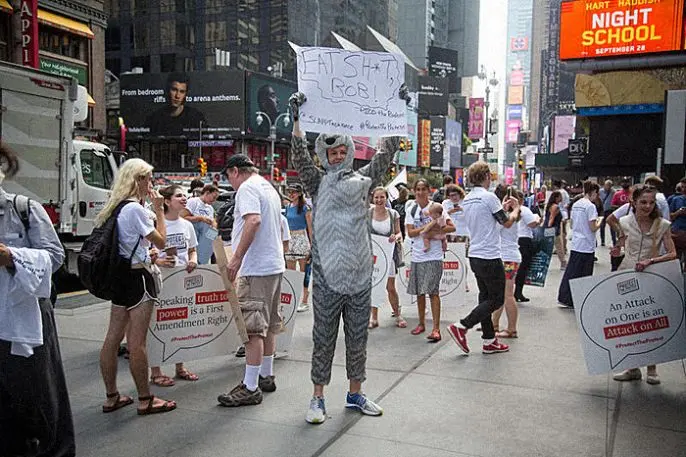
Other SLAPP-related cases that the group hightlights include coal-mining titan Robert Murray recently suing comedian John Oliver over a Last Week Tonight segment that he felt portrayed him badly. Prior to becoming president, Donald Trump sued a New York Times reporter for a story that claimed he was worth less than he publicly stated.
The rise of Trump, in particular, lends a particular urgency to Protect the Protest’s mission. Trump has talked openly about dismantling the current libel law that protects many journalists from frivolous claims of defamation. Since people began rallying against his nomination of Brett Kavanaugh for the Supreme Court, he has also suggested that protesting should be illegal.
That threatens the currently successful tactics of groups like Black Lives Matter and the #MeToo movement, which in recent months have used their collective voices to embolden anyone who feels discriminated against or abused to speak out, often against obviously racist or sexually exploitative institutional powers. “We’re at a turning point right now. We’re at a critical inflection point for our country,” Morgan says. “And I think everyone should really be engaged and really be aware that [people are] coming after our First Amendment rights and we need to be prepared to stand up and say no.”
Recognize your brand’s excellence by applying to this year’s Brands That Matter Awards before the early-rate deadline, May 3.
